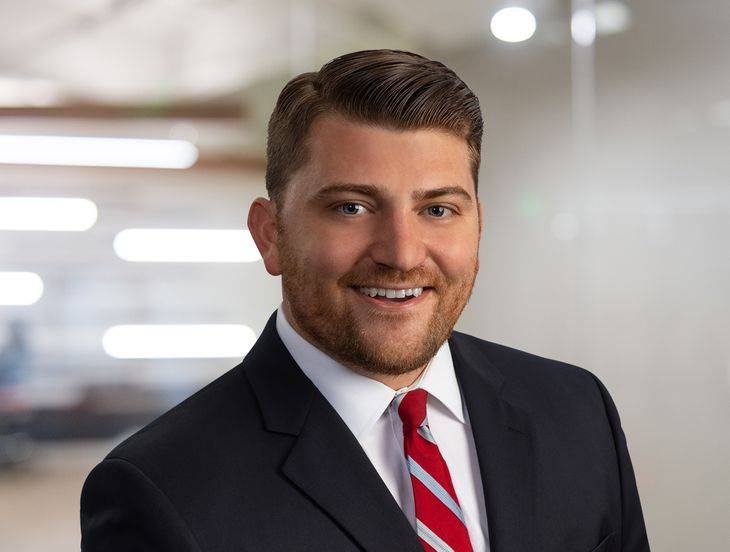December 2018: The Top 15 Labor And Employment Law Stories
Insights
1.01.19
It’s hard to keep up with all the recent changes to labor and employment law. While the law always seems to evolve at a rapid pace, there have been an unprecedented number of changes for the past few years—and this past month was no exception.
In fact, there were so many significant developments taking place during the past month that we were once again forced to expand our monthly summary well beyond the typical “Top 10” list. In order to make sure that you stay on top of the latest changes, here is a quick review of the Top 15 stories from last month that all employers need to know about:
- Federal Court Upholds Unworkable Joint Employer Test – With one final jolt to end the year, a federal appeals court ruled on December 28 that the impractical joint employer test originally adopted by the Obama-era National Labor Relations Board in 2015 was properly enacted and therefore remains in effect (Browning-Ferris Industries v. NLRB). This doesn’t change much for employers’ day-to-day operations, as the Trump Labor Board’s efforts to overturn the controversial standard ran into a roadblock in early 2018 and the standard has effectively been in place for the better part of three years now. The best hope for employers to have the test returned to a balanced standard might be to await the finalization of rulemaking from the NLRB itself, which could be on the horizon for 2019. For a quick recap of where we’ve been, a review of what happened, and a forecast for where we expect to go from here, read on.
- How The Government Shutdown Is Affecting Your Workplace – Because Congress and the president could not approve a stopgap funding bill by midnight on December 21, the federal government partially shut down, with no compromise in sight. What will this mean for employers across the country? Because of the peculiarities of the federal budget process, this shutdown has not hit the nation’s employers as hard as prior shutdown events. Read on to get a better understanding of which federal agencies are impacted and what to expect in the coming days (or weeks) (read more here).
- ACA Ruled Unconstitutional, But It’s Status Quo For Employers—For Now – A Texas federal judge dealt a serious blow to the Affordable Care Act (ACA) on December 14, ruling that the tax reform law passed by Congress in late 2017 rendered the healthcare law unconstitutional. While U.S. District Court Judge Reed O’Connor’s 55-page opinion overturns the entirety of the law on a national basis, his ruling does not include any sort of injunction that would immediately cause employers to alter their practices with respect to benefit administration. The law remains in place for the foreseeable future, but it certainly stands on shakier ground today than it did just a few days ago (read more here).
- Massive Changes To H-1B System Proposed For 2019 – The Department of Homeland Security (DHS) recently proposed a new rule that could dramatically change the way the H-1B application process works. The rule would establish an electronic pre-registration system and run the annual lottery based on the pre-registrations rather than requiring employers to file entire H-1B applications. The DHS is also considering changing the way it conducts the lottery to improve the odds of those with graduate degrees from U.S. universities. While U.S. Citizenship and Immigration Services (USCIS) is providing 30 days for public comment, the agency is attempting to fast-track the process to have the system in place for the upcoming H-1B application period, which is set to begin in April 2019. While these proposed rule changes have the potential to save employers considerable time and money, there are major concerns about whether loopholes could exist to manipulate the proposed system. In addition, there are questions as to whether the DHS would exceed its administrative authority in adopting such changes. These issues, along with typical administrative red tape, could mean that the revised registration system may not be in place in time for the April 2019 filing season. However, employers should make themselves aware of these potential changes in the event they are adopted in the near future (read more here).
- Day One – Dynamexto Dominate Legislative Discussion in California in 2019 –December 3 was the first day of the new legislative session in California, the first day that members could introduce bills for the 2019-2020 legislative session. If the first day was any indication, there is one issue that will dominate employment policy discussion in 2019: Dynamex, Dynamex and Dynamex. The most significant and pressing concern facing California employers is continued fallout from the blockbuster decision by the California Supreme Court, where the court adopted an entirely new test for determining whether an individual is an employee or an independent contractor. As we discussed here, this new legal standard, known as the “ABC Test,” makes it more difficult for businesses to utilize independent contractors and threatens to upend entire industries in California – and has potential far-reaching implications for the gig economy in particular. There was an attempt late in the year by the business community to come up with a legislative solution to some of the difficulties created by this new standard, but that effort fizzled when legislative leadership announced there would be no discussion of the issue. But this issue has not gone away (read more here).
- New York Once Again Takes Aim At Employee Scheduling Practices – The New York State Department of Labor issued proposed regulations seeking to curb on-call scheduling, “call-in” shifts, and last-minute shift changes on December 7. The proposed regulations endeavor to provide employees with more predictable schedules, or compensate them for last-minute schedule changes. If implemented, the regulations will severely impact scheduling practices of New York employers. What do you need to know about these proposals? (read more here)
- California Supreme Court Provides A Dose Of Helpful Medicine For Healthcare Employers– In an important decision for employers in the healthcare industry, the California Supreme Court approved the Industrial Welfare Commission’s long-standing exemption for health care workers in relation to second meal period waivers. The Gerard v. Orange Coast Memorial Medical Centercase, released on December 10, had already been the subject of another decision from the California Supreme Court, and the California legislature even passed legislation in the middle of the case directly affecting the court’s decisions—which means this decision was a long timing coming for the California healthcare community. The plaintiffs’ primary complaint was that their former employer illegally allowed its healthcare employees to waive their rights to a second meal period on shifts longer than 12 hours. The decision finally rejects that contention once and for all, affirming that healthcare workers in California may waive their rights to second meal periods (read more here).
- New York City Sets Nation’s First-Ever Gig Economy Minimum Wage – We’ve been expecting this since August, when the New York City Council passed a proposal establishing that ride-sharing driver should earn a minimum rate of pay, the first such minimum wage in the nation. On December 4, the other shoe dropped and the minimum wage was set. The Taxi and Limousine Commission (TLC) voted to set the minimum gross pay at $26.51 per hour, which, according to Crain’s, will boil down to $17.22 after expenses. “That is the equivalent for an independent contractor of $15 per hour, including paid sick leave and payroll taxes,” the article concludes. According to a TLC study, the average ride-share driver in NYC currently earns about $11.90 an hour, so the new rules will mean a hefty raise for them—which annualizes to more than $9,000. In fact, 85 percent of driverscurrently earn less than $15 per hour (read more here).
- Waymo Autonomous Vehicle Ride-Share Service Raises Issues for Employers – After a decade of testing and over 10 million miles driven on public roads, Waymo officially launched Waymo One on December 5, the country's first commercial autonomous ride-share service. Waymo One will now begin providing customers rides in AVs 24 hours a day. Similar to other ride-share services, consumers use an app to request a ride and enter in their drop-off location. The app provides a fixed price for the cost of transporting the rider from their pickup location to the requested drop off location. As traditional automakers and tech companies continue to work toward launching commercial AV ride-share services, employers should review their policies and procedures and start strategizing about how the proliferation of commercial autonomous ride-share services will impact their employees and customers. For example, employees may soon be able to work remotelyduring their commutes and some companies are already testing the potential of providing free rides to their stores. Specifically, employers should monitor the progress of commercial AV ride-share services in order to ensure that their policies and procedures related to data privacy, confidential information, remote work, and workplace safety are adequately up to date to address potential issues that may arise due employees being able to work while traveling. On the plus side, riders that have been able to take advantage of Waymo One have already reported the ability to increase their productivity during their commutes (read more here).
- NYC Council Bans Family Planning Discrimination In The Workplace – In its final session of the year, the New York City Council voted to prohibit employment discrimination based on an individual’s reproductive health choices. On December 20, the Council approved an amendment to the New York City Human Rights Law (NYCHRL) which will add “sexual and reproductive health decisions” to the list of protected classes under the law. The amendment was introduced to in response to the federal government’s efforts to curtail reproductive healthcare access (read more here).
- USDOL Opinion Letters Remind All That Nuances Matter – Despite most of the government being occupied with the "shutdown" dilemma, the unaffected USDOL has remained busy and gifted us with two opinion letters on December 21: an enlightening one regarding certain volunteers and a simple reminder that for FLSA purposes the rate is all about the math (read more here).
- Uber’s Self-Driving Cars Set To Return To The Road In 2019: Reports – Gizmodo published a storyon December 18 confirming that Uber has been “given the green light” to resume its testing of self-driving cars in Pennsylvania, according to reports from The Information. It appears that the company’s legal department made an internal announcement on Tuesday discussing the service, relaying the news that the company has improved safety features for the service in recent months (read more here).
- Massachusetts Poised To Up The Ante In Labor Disputes Amid 6-Month Lockout –Massachusetts legislators have taken steps to immediately enhance the Commonwealth’s unemployment compensation regime for locked-out employees of gas and electric companies. In light of the 6-month standoff at National Grid, the gas and electric utility that serves much of Massachusetts, the House of Representatives passed a bill on December 5 that would extend an employee’s unemployment eligibility indefinitely for the duration of any lockout, with their employer footing 100 percent of the cost. Where do we expect this legislation to go from here, and what do Massachusetts employers need to know about this development? (read more here)
- Philadelphia Will Have A “Fair Workweek”: What Covered Employers Need To Know Right Now – On December 6, the Philadelphia City Council approved the Fair Workweek Ordinance by a vote of 14-3. Following its passage by City Council, Mayor Kenney reiterated his support and his intention to sign the Ordinance into law. Even if Mayor Kenney vetoed the Ordinance, City Council could override the veto with 12 votes- which it currently has. In sum, it appears that Philadelphia will have a Fair Workweek for 130,000 employees in the retail, food service, and hospitality industries (read more here).
- Gig Businesses Get Clickwrapped Gift From Massachusetts Court Right In Time For Christmas – On the eve of the holidays, gig businesses got a gift in the form of a ruling from a Massaschusetts federal court where a clickwrap agreement was held to be sufficient to bind a worker to an arbitration clause. The December 19 ruling in favor of Lyftwill not necessarily help all businesses across the country—especially because the court specifically pointed out that his ruling might have been different had he been applying California or New York law—but it does continue the trend of holding workers to the terms of an electronic arbitration agreement (read more here).
If you have any questions about these developments or how they may affect your business, please contact your Fisher Phillips attorney.
This Legal Alert provides an overview of specific legal developments. It is not intended to be, and should not be construed as, legal advice for any particular fact situation.
Related People
-
- Davis C. Bae
- Regional Managing Partner
-
- Steven M. Bernstein
- Regional Managing Partner and Labor Relations Group Co-Chair
-
- Melissa Camire
- Partner
-
- Jeffrey M. Csercsevits
- Partner
-
- Benjamin M. Ebbink
- Partner
-
- Todd A. Lyon
- Partner
-
- Richard R. Meneghello
- Chief Content Officer
-
- Joshua D. Nadreau
- Regional Managing Partner and Vice Chair, Labor Relations Group
-
- Brett P. Owens
- Partner
-
- Thomas Paul Rebel
- Senior Counsel
-
- Justin Reiter
- Partner
-
- Ashton M. Riley
- Partner
-
- Shanon R. Stevenson
- Partner
-
- Travis W. Vance
- Regional Managing Partner













